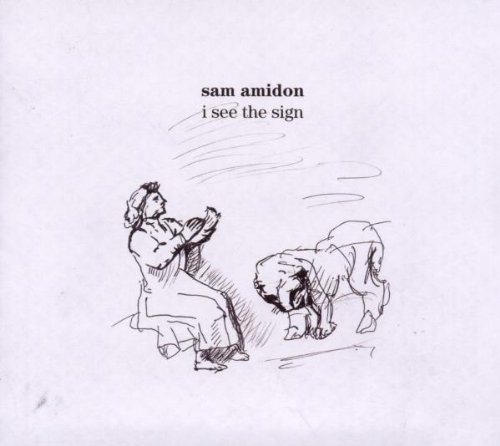
Sam Amidon
I See The Sign
Release Date: Apr 13, 2010
Genre(s): Folk, Singer-Songwriter
Record label: Bedroom Community
Music Critic Score
How the Music Critic Score works
Album Review: I See The Sign by Sam Amidon
Excellent, Based on 5 Critics
Based on rating 9/10
Despite the prevalence of faux-folksingers sensitively strumming acoustic guitars and softly mewling their angst, Sam Amidon continues to occupy a rarified space. Not just because he still refuses to write his own songs (this time we get a beautifully-judged version of R. Kelly’s unreleased “Relief” in addition to ten songs of a less recent vintage), and not just because via continued collaborations with Nico Muhly and others Sam’s music is much more interesting and viscerally gorgeous than most of his contemporaries.
Based on rating 8.1/10
Sam Amidon's idea of recomposition-- of excavating Appalachian folksongs; rearranging, repurposing, and creating a dissociation that feels uniquely contemporary-- isn't exactly unprecedented. Musicians-- like A.P. Carter, who scrambled up and down Clinch Mountain in the late 1920s, collecting local songs for the Carter Family's repertoire-- have been reinventing folk songs since before we knew to call them folk songs.
Based on rating 8/10
I'll keep it short, because the more time you spend reading this, the less time you have to listen to Sam Amidon's new album, I See The Sign, and it would really be a shame if you didn't spend the next occasion you find yourself alone in the company of these friendly, forgiving, firelit songs. At a time when it's somewhat fashionable to pretend you grew up on a farm and did nothing but twang a banjo, chew corn and eat mudpies (I'm looking at you, Mumford), it's pleasing to hear a set of songs that resonates with a genuine hearthside warmth and heath-begotten bluster. Amidon's music has always sounded countrified and uncollared in the best and least cheesy of ways, but there's a maturity to I See The Sign that wasn't quite so evident in his three previous ventures.
Based on rating 8.0/10
OK, so maybe Sam Amidon deals in the old, filling his records with worked-over versions of traditional folk songs. But what makes him so compelling is that the results are hardly as antiquated as the source material may be. Along with help from his pals -- mainly people like composer Nico Muhly and Doveman's Thomas Bartlett -- Amidon mines an old America and twists it up into something new and awfully strange.
Opinion: Excellent
DR. DOG"Shame, Shame" (Anti-) Dr. Dog, the Philadelphia indie-rock band that released its first album in 2001, is already feeling its age. “Where’d All the Time Go?” asks one song title (and opening line), and it’s a recurring notion throughout “Shame Shame,” the band’s new album. .

